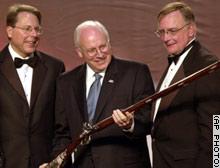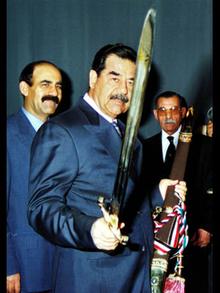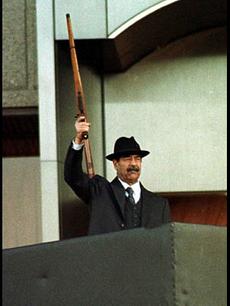SAVAGE FORM OF CAPITALISM: Chinese factory workers risk limbs to hold jobs
BY TIM JOHNSON
FREE PRESS WASHINGTON STAFF
SHENZHEN, China — The Pingshan People’s Hospital in the thriving industrial city of Shenzhen has a ward devoted to hand injuries.
In one room, Yan Kaiguo, 23, cradles his bandaged right hand. April 8, a machine at an electronic circuit-board plant crushed part of his index finger.
Yan feels lucky he lost only part of his finger, down to the first knuckle. He’s confident he’ll get back his job, which pays about $96 a month.
“Every day, we get five or six cases like this and sometimes over a dozen,” said a hand surgeon at another large Shenzhen hospital, who asked that neither he nor his hospital be identified for fear of reprisal from city officials. “Most of the machines are old and semiautomatic. The workers have to put their hands into the machines.”
In a grim replay of the industrial revolution in the United States and other countries, industrial machinery will crush or sever the arms, hands and fingers of some 40,000 Chinese workers this year, government-controlled news media report. Some experts privately say the true number is higher.
A majority of the accidents occurs in metalworking and electronics plants with heavy stamping equipment, shoe and handbag factories with leather-cutting equipment, toy factories and industrial plastics plants with blazing hot machinery.
In Shenzhen’s hospital wards, maimed factory workers nurse mangled hands and forearm stumps. They tell of factory managers who’ve removed machine safety guards that slowed output and of working on decrepit, unsafe machinery. Workers toiling 100 hours a week grow dazed from fatigue, then lose their fingers to machines.
Local officials routinely overlook appalling safety conditions, worried that factory owners will relocate. They send mutilated migrant workers back to distant rural villages, shunting the burden of workplace injuries onto poorer inland provinces.
The workplace carnage is bitterly ironic in a communist country founded on principles of protecting downtrodden workers and peasants. Karl Marx, were he alive, would probably see an echo of the labor conditions in mid-19th-Century England that gave rise to his communist principles.
Chinese Communist Party leaders are so eager to maintain high economic growth and to create jobs for tens of millions of potentially restive Chinese that they now preside over a savage form of capitalism. It’s one in which maimed migrant workers can readily be discarded. Independent labor unions are banned. Workers are placed in front of machines for endless stretches.
But labor monitors say foreign companies that relentlessly demand lower prices and U.S. consumers who gobble up low-cost goods contribute to the problem.
Zhou Litai, a lawyer who represents hundreds of workers maimed or killed on the job, said foreign consumers should be aware that some “Made in China” products “are tainted with blood from cut-off fingers or hands.”
Former U.S. Rep. David Bonior, D-Mich., long an advocate of worker and union rights, called the Chinese record on worker safety horrendous.
“Worker safety is a very important issue in the free trade debates, because, if you go to places like China, worker safety is not considered a priority, and as a result there are far too many worker deaths.
“If we continue to move in the direction of these same new trade regimes, you’re going to see more and more workers injured and losing their lives, and that’s one of the issues that’s in the forefront in the discussions.”
Smaller factory owners have no leverage with global buyers and are always worried they’ll be replaced by other suppliers, so they try to make money rapidly, said Chen Ka-wai, the assistant director of the Hong Kong Christian Industrial Committee, a watchdog group that monitors working conditions on the mainland.
Stories of dismembered workers are numbingly similar. Usually, the migrant worker is a recent arrival to one of China’s coastal industrial zones. He or she takes any job offered, no matter the conditions. With no safety training, the worker is assigned to an unfamiliar machine.
Wang Xuebing, a 19-year-old from Hubei province in central China, came to Shenzhen and got a job in July in a metalworking plant. A month later, his foreman escorted a work crew to a different factory owned by a friend and “asked me and two coworkers to operate a metal mold machine,” Wang said.
The machine made casings for air conditioners, using tons of pressure to mold sheeting. Wang said the machine went on the fritz but was rigged to work again.
“When I placed a metal sheet in the machine, it pressed down. My hand was severed. I lost consciousness,” Wang recalled.
Zhu Qiang came to the Pearl River Delta region from inland Sichuan province in early 2002. March 2 of that year, he got a job making industrial plastic and shopping bags. Two weeks later, while working a 16-hour shift, he lost his right hand.
“We were extremely tired. We were nodding our heads, almost asleep,” Zhu said. “My hand got tangled with the plastic and got burned. I was rushed to the hospital. There was no way to save my hand.”
For the loss of his right hand, 22-year-old Zhu was given about $4,800. China’s state-owned media mention more frequently the staggering number of workplace injuries, especially in the region that includes Shenzhen, near Hong Kong.
“There are at least 30,000 cases of finger losses each year in the Pearl River Delta factories, and the total number of fingers being cut off by machines is over 40,000,” the China Youth Daily, a state-owned national newspaper, said in a short report March 13.
Chinese media call Yongkang in coastal Zhejiang province the “finger-cutting city.” Yongkang’s 7,000 small factories make tools, and some 1,000 workers in those factories lose fingers or hands each year, the Metropolis Express newspaper said Feb. 18.
“The majority of them will be immediately fired by the owners,” said the Web site run by the Communist Party’s national newspaper, People’s Daily. “The compensation for each cut-off finger is 500 yuan,” or about $60, roughly a month’s salary.
For a young person, losing a hand spells doom. With as many as 20 million healthy people clamoring for jobs each year, factory owners never hire disabled people. Dismembered workers are condemned to destitution and often loneliness.
“With no money, it’s hard to find a girlfriend,” said Sun Hongyuan, 28, a worker who lost his right hand several years ago.
In Washington last month, the AFL-CIO petitioned the Bush administration to demand that it pressure China to increase wages and improve working conditions. Acting under a 1974 trade law, the labor group said Chinese workers suffer “staggering rates of injuries, illness and death” because the nation unfairly scrimps on workplace safety and denies a series of worker rights. The administration has until early May to rule on the request.
In China, laws abound, but enforcement is often lacking.
“China has a series of laws protecting workers’ rights and interests. They are probably better than in some Western countries. But they don’t apply it, particularly at the local level,” said Zhou, the labor lawyer.
Maybe there are all these mutiliations because China is so big, government inspectors can’t oversee everything. But hey, they have the time, money and resources to watch over what people are doing on the Internet, and to enroll everyone in the hukou system and enforce it with a vengeance. They have time to enforce their repression of HBVers. They have time to churn out maudlin self-congratulatory drivel in their media, telling you all what a great job they are doing taking care of you.



Comments